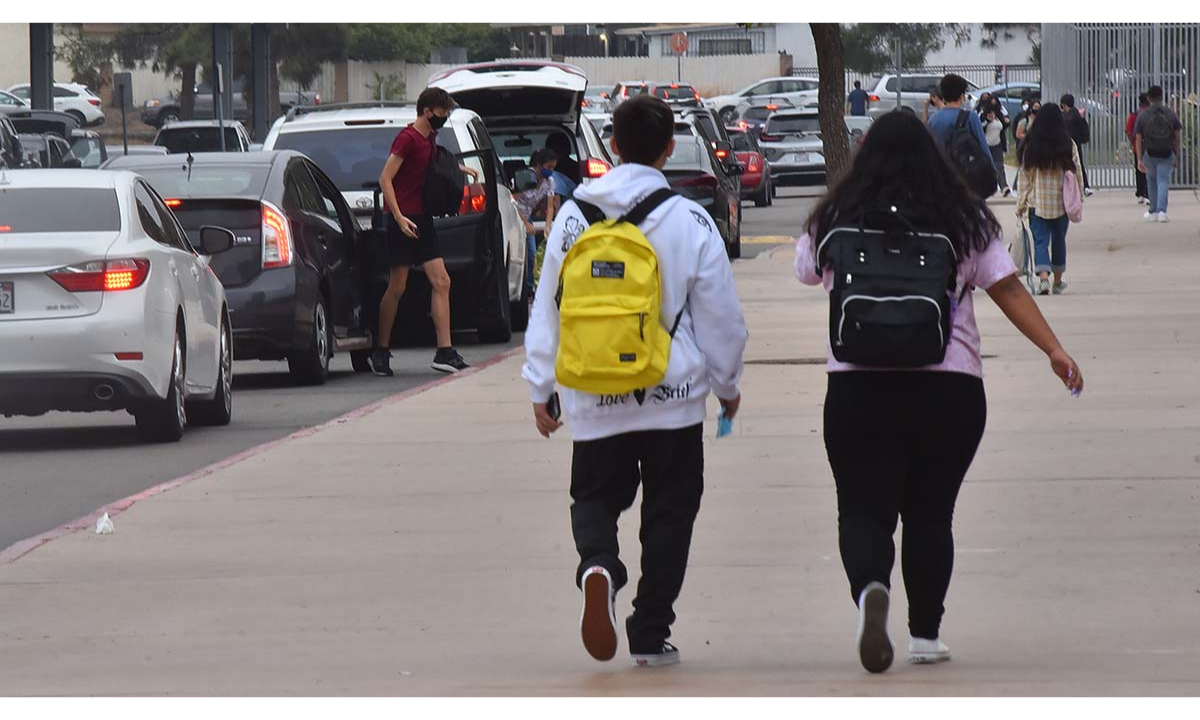This article was originally published in Times of San Diego with Photo Cred to Chris Stone
Written by Mark Powell
The San Diego Unified School District recently approved a plan to spend $303 million in COVID relief funds to pay for staff, academic recovery and student mental health services. But a portion of the funding should have been allocated for drug prevention to help combat a growing teen opioid crisis.
In the plan the board approved $7.7 million, or just 2.5% of the funds, for additional counselors and mental health workers compared to $9.4 million for ethnic studies.
It is not clear why any COVID relief funds were spent on ethnic studies when these funds were intended to counter the ill effects the pandemic had on students. And $9.4 million would have gone a long way to help address a growing teen opioid crisis exacerbated by the pandemic and fueled by an influx of counterfeit prescription pills laced with the deadly drug fentanyl.
These funds could have also been used to hire even more school counselors to bring the ratio of counselors to student in line with recommendations from the American School Counselor Association.
San Diego Unified gives each middle school one counselor for every 481 students and each high school one counselor for every 459 students. But according to the Counselor Association, that’s not enough. It recommends a ratio of one counselor for every 250 students. This should have been taken into considerations when the school board allocated their COVID funds for ethnic studies.
School closures intended to keep students safe during the pandemic ushered in a different set of dangers: anxiety, stress, depression and other serious mental health conditions that negatively affect students and their families. And many public school teachers will agree that they were not prepared to deal with the mental health issues and other impacts that distance learning had on their students when they returned to in person instruction.
Understanding the need to address student mental health, the district announced that last Friday, Nov. 12, would be a student mental health day. Attending class that day was optional for students as long as their parents approved.
Officials at the district described the motivation behind the recommended day off as an acknowledgement of the stress families and teachers have been under as they return to in-person learning. Unfortunately for many students this was just another lost instructional day and most likely did not do much to address student mental health.
Ultimately, it is a parent’s responsibility to address their children’s health issues, and that includes mental health. However, in many cases that does not happen and the child is left to deal with anxiety, depression and other mental health issues on their own.
Some teens will “self medicate” to help cope with the stress, depression and anxiety. And when teens use drugs or alcohol during adolescence, they have an increased risk of developing a substance abuse disorder later in life.
Some of the COVID funding could have been used to focus on substance abuse education and a fentanyl awareness campaign for teens who may be considering buying pills on the street to self medicate.
Recognizing the need to address student mental health is a step in the right direction, but much more still needs to be done. Providing schools with an adequate number of school counselors and focusing on teen substance abuse prevention must become a top priority for educators across San Diego County. Even before COVID-19 pandemic, youth suicides were already at record high, so addressing student mental health issues is paramount.
More COVID relief funding should have been allocated to address the increase in teen drug use due to the pandemic and yet almost $10 million in relief money was allocated toward ethnic studies. The rationale behind funding ethnic studies with COVID funds remains unknown.
Many in the public have questioned the district’s allocation of COVID funds in this manner and it may be time for the district to establish a community-based advisory board whose objectives would be to review all substantive fiscal and policy matters and make appropriate recommendations to the school board prior to adoption.
It is time to restore trust in our public schools by demanding fiscal accountability and ending irresponsible budget decisions.
Mark Powell is a former San Diego County Board of Education member and president of Parents For Quality Education. Powell holds a master’s degree in school counseling.




